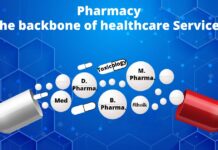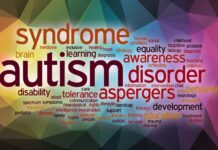The head of this working group is Associate Prof. Dr.Sc.Aleksandra Buha Djordjevic
The main thing that you have to remember on this journey is just be nice to everyone and always smile. Refreshingly, what was expected of her was the same thing that was expected of Lara Stone: to take a beautiful picture.
 Aleksandra Buha Djordjevic is a pharmacist holding a PhD degree in Toxicology. Her research focus in on the environmental contaminants and their effects on human health. As a member of many international working groups and consortiums, she is actively involved in environmental and global health promotion. Currently working as an associate professor at the Department of Toxicology and actively participates in the preparations and implementations of undergraduate and postgraduate courses of the Department. Within the CircleU Alliance, she is an Academic Chair for the Knowledge Hub on Global Health. Since September 2020, she has been the principal investigator of the national project “Decoding the role of Exposome in endocrine health” within the Program for excellent projects of young researchers (PROMIS) financed by the Science Fund of the Republic of Serbia. Currently, she also participates in COST action CA 20121 „Bench to bedside transaction for pharmacological regulation of NRF2 in noncommunicable diseases“ as a MC member and science communication coordinator. According to the list published by scientists from Stanford University, she is named in the world’s top 2% of Scientists List in 2020,2021,2022 and 2023.
Aleksandra Buha Djordjevic is a pharmacist holding a PhD degree in Toxicology. Her research focus in on the environmental contaminants and their effects on human health. As a member of many international working groups and consortiums, she is actively involved in environmental and global health promotion. Currently working as an associate professor at the Department of Toxicology and actively participates in the preparations and implementations of undergraduate and postgraduate courses of the Department. Within the CircleU Alliance, she is an Academic Chair for the Knowledge Hub on Global Health. Since September 2020, she has been the principal investigator of the national project “Decoding the role of Exposome in endocrine health” within the Program for excellent projects of young researchers (PROMIS) financed by the Science Fund of the Republic of Serbia. Currently, she also participates in COST action CA 20121 „Bench to bedside transaction for pharmacological regulation of NRF2 in noncommunicable diseases“ as a MC member and science communication coordinator. According to the list published by scientists from Stanford University, she is named in the world’s top 2% of Scientists List in 2020,2021,2022 and 2023.
A “Health and Pharmacy” working group plays a crucial role in advancing pharmaceutical and healthcare-related initiatives. Its specific tasks and responsibilities are some common activities that this working group might undertake:
-
Healthcare Policy and Advocacy: Engage in healthcare policy discussions and advocate for policies that promote access to quality healthcare services, affordability of medications, and improved healthcare outcomes. Collaborate with government agencies, healthcare providers, and advocacy organizations to influence policy decisions.
-
Pharmaceutical Regulation and Safety: Monitor and provide input on pharmaceutical regulations to ensure the safety, efficacy, and quality of medications. Promote pharmacovigilance to identify and address adverse drug reactions.
-
Access to Medications: Work to improve access to essential medications, especially for underserved populations. Advocate for affordable drug pricing, generics, and biosimilars.
-
Research and Development: Support research and development efforts related to pharmaceuticals, including drug discovery, clinical trials, and innovative treatment approaches.
-
Pharmacy Practice: Promote the role of pharmacists in healthcare delivery. Advocate for expanded pharmacist services, such as medication therapy management, vaccination services, and chronic disease management.
-
Patient Education: Develop and disseminate educational materials to empower patients to make informed decisions about their medications and healthcare. Promote health literacy.
-
Health Technology: Explore the use of technology in pharmacy and healthcare, including telemedicine, electronic health records, and digital health solutions.
-
Pharmacy Ethics and Standards: Establish and uphold ethical standards for pharmacy practice, including issues related to patient privacy and confidentiality.
-
Pharmacy Education: Collaborate with educational institutions to ensure that pharmacy students receive comprehensive and up-to-date training in pharmaceutical sciences and patient care.
-
Pharmacy and Health Equity: Address healthcare disparities and advocate for equitable access to healthcare services and medications among diverse populations.
-
Medication Safety: Promote safe medication use through initiatives like medication reconciliation, error reporting, and medication disposal programs.
-
Public Health Initiatives: Collaborate on public health campaigns and initiatives related to medication adherence, disease prevention, and health promotion.
-
Pharmaceutical Supply Chain: Monitor and address issues related to the pharmaceutical supply chain, including drug shortages, counterfeit medications, and supply chain security.
-
Global Health: Engage in global health initiatives, such as access to essential medicines in developing countries and addressing global health crises.
-
Professional Development: Offer opportunities for pharmacists and healthcare professionals to enhance their skills and stay updated on the latest developments in pharmacy and healthcare.
-
Collaboration and Networking: Build relationships and collaborations with other healthcare organizations, research institutions, pharmaceutical companies, and healthcare providers to strengthen the impact of the working group’s efforts.
-
Healthcare Innovation: Explore emerging trends and innovations in healthcare, such as precision medicine, gene therapies, and artificial intelligence in healthcare delivery.























